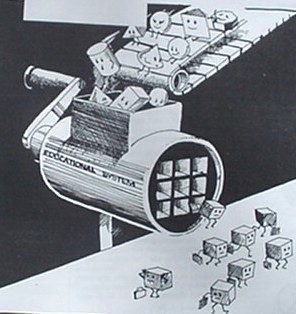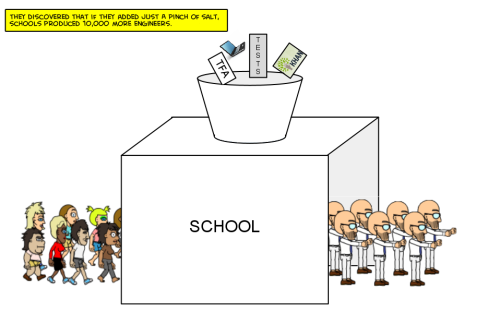Schools as Factories: Metaphors That Stick
You have seen images like these time and again:
The idea of the school as an efficient factory assembly line has a long but surprising history. A century ago, the notion of schools delivering finished products to a democratic society was both new and admired. Here is what Professor Ellwood P. Cubberley, of Stanford University said in the early 20th century:
Our schools are, in a sense, factories, in which the raw products (children) are to be shaped and fashioned into products to meet the various demands of life. The specifications for manufacturing come from the demands of twentieth-century civilization, and it is the business of the school to build its pupils according to the specifications laid down.
In the midst of the progressive-inspired school efficiency movement, sparked by “scientific management,” Cubberley captured the prevailing beliefs of most school reformers then. Critics of the day, such as John Dewey, did question this efficiency-driven mindset that dominated schools then arguing that the purpose of public schooling in a democracy goes beyond preparation for the workplace. But their voices were drowned out by champions of uniformity, productivity, Schools as Factories: Metaphors That Stick | Larry Cuban on School Reform and Classroom Practice:


